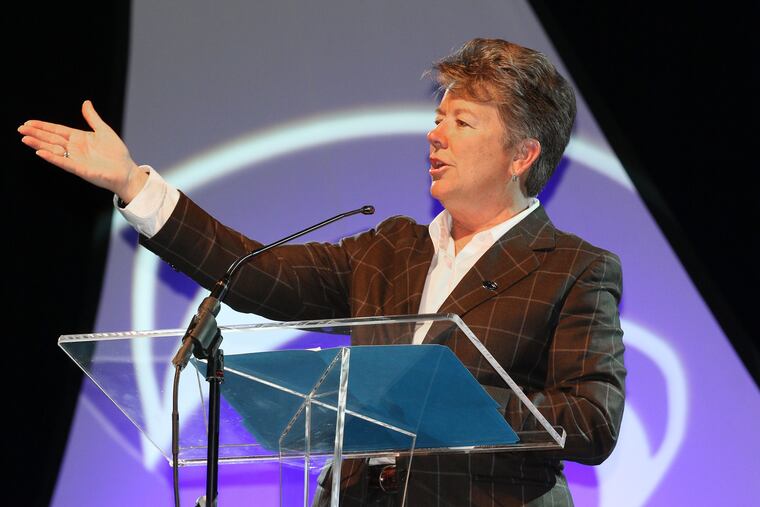Penn State athletics VP Sandy Barbour admits ‘a little bit of pessimism’ about whether football will be delayed, or played at all
Barbour said of the 102 student-athletes who have been tested since they started to return to campus on June 8, none of the tests have come back positive. She said the university is discussing a number of plans regarding a football season and how many fans can attend.

Sandy Barbour is pleased with how the return to the Penn State campus of student-athletes from football and five other sports has progressed. The university’s vice president of intercollegiate athletics revealed Wednesday that of the 102 COVID-19 tests administered to athletes from football and men’s and women’s basketball to date, none have come back positive.
However, as the numbers of coronavirus cases continue to climb around the country, Barbour admits that she is experiencing a “little bit of pessimism in the last couple of weeks” about whether the football season will be delayed, or whether it will be conducted at all.
“We’ve been ticking up on the optimism scale,” she said in a Zoom conference call with reporters. “The approach that I’m taking to this is that it’s part of the ebb and flow of the virus. Obviously my hope is that as people start looking at the masking and social distancing again and all the precautions and maybe recommitting to the seriousness of this, that we’ll see it flatten out.
“The bottom line is whatever it is we’re going to do, we’re going to do it only if it’s safe and healthy starting with students, moving to coaches and staff, and spreading out to our community. What we’re doing is planning. Given the uncertainty, we’ve had to work on a lot of plans, a lot of different scenarios. When the time comes, if it’s healthy and safe to do it, we’ll obviously do it. If it’s not, we won’t.”
Barbour said that moving the 2020 schedule to the spring “would be a last resort,” with the biggest challenges being a second straight year without spring football, and the wear and tear of having seasons in the spring and fall of 2021.
Football players started returning to campus June 8, with voluntary workouts beginning one week later. A total of 75 players were scheduled to be in the first phase, with others to follow, although an exact number of players going through workouts has not been announced.
Barbour said it was up to each player to decide when he wants to return, and should he decide it would be too risky, his scholarship would not be in jeopardy.
Men’s and women’s basketball players were the next to return to campus, followed by men’s and women’s soccer and women’s volleyball. Barbour said the results of 50 to 70 tests taken of athletes from the soccer and volleyball teams have not been received. She said testing results of athletes would be made public every two weeks.
Barbour said the university will work with the governor’s office on reduced seating at Beaver Stadium and other campus venues. “We’re still not quite there yet” with working out a seating plan.
With smaller crowds comes the likelihood of salary reductions for officials, coaches, and staff. Barbour said she has held off telling coaches and employees of a specific amount, but with a new fiscal year having begun Wednesday, she admitted it should be done within the next few weeks.
“We’re looking at significant reduction in those revenues,” she said. “We have to figure out how to do that. We’re looking at lots of different operational ways to reduce our costs. We’ve come up with some good costs savings, trying not to impact competitiveness of any of our programs.
“Given the severity of what we anticipate might be coming, pay reductions are probably unavoidable.”
Barbour also said athletes, coaches, and staff have spent the last five-plus weeks having discussions about social injustice and fighting hate and racism. She said she is proud of “the way that our department has stepped up from a voice standpoint.”
As for protesting on the field, Barbour said that while each player has an individual voice, “if you’re going to use the Penn State platform, the team platform, then it involves the team.
“So I anticipate there will be lots of conversations on the team level about how teams want to express themselves as teams,” she said, “and how they will want individuals on their teams to express themselves. I think we’ll see a good deal of that this fall.”
Barbour also announced that all of the 20 to 25 seniors in the Class of 2020 who could not compete in spring sports because of the pandemic and will return next season will have their scholarships covered in full by donors, a cost of $600,000 to $700,000.